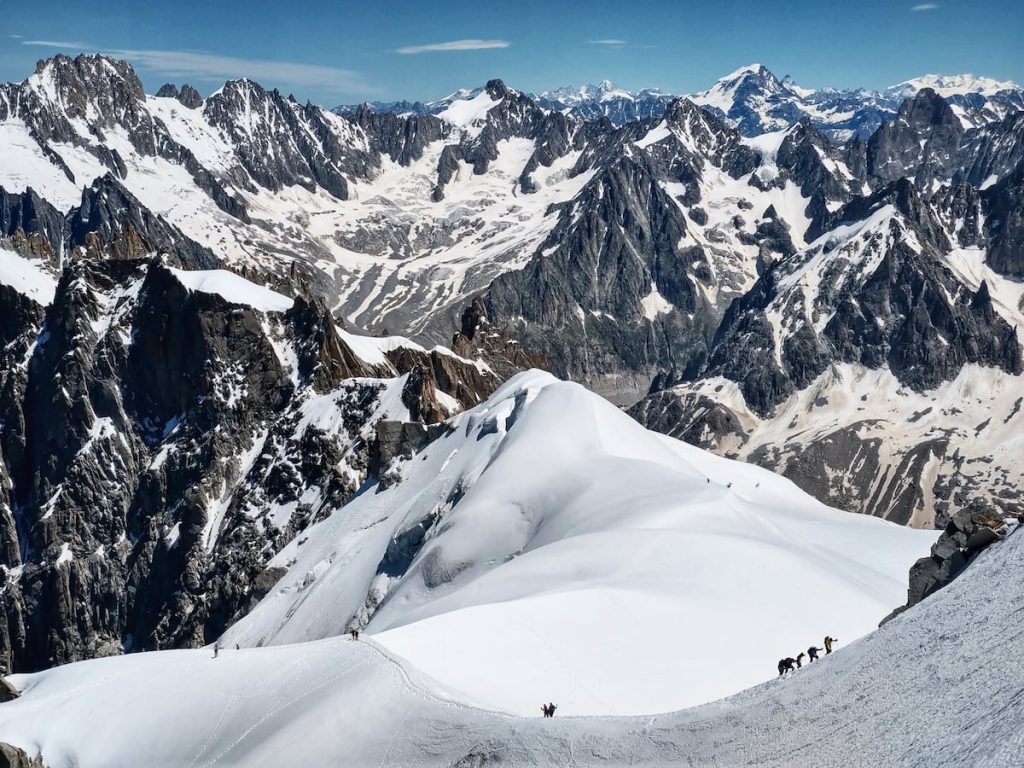The mountaineering world was shocked on Wednesday when two Basque climbers, Markel Etxezarraga and Markel Galdos, both in their mid-twenties, died while descending Mont-Blanc du Tacul in the Alps. The two experienced climbers fell to their deaths while checking the security of a rope for rappelling down a wall, causing the rock to give way. The warmer temperatures in snowy and icy areas, potentially caused by climate change, can lead to increased risks of avalanches, rockslides, and instability on surfaces. The bodies of the climbers were located by rescue authorities using a helicopter, and an investigation into the accident was initiated based on initial findings and the survivor’s account of the events.
The two mountaineers, known in their communities for their passion for mountain climbing, were from the towns of Lezo and Oiartzun in the Basque Country. Despite their young age, they had extensive experience in similar expeditions. The companion who witnessed the fall was able to reach a rescue point and alert authorities about the accident. According to a member of the Peloton de Gendarmerie de Haute Montagne (PGHM) in Chamonix, the fall occurred while the climbers were rappelling from the top of the mountain and checking the security of a rock to which they were anchored. The impact of climate change on mountain conditions, such as unstable snow or ice masses due to higher temperatures, can create hazardous situations like this one, with rocks becoming less stable.
A spokesperson for the PGHM highlighted the potential impact of climate change on mountain accidents, as rising temperatures can weaken the stability of rocks and ice in alpine areas. The increased heat can lead to incidents such as avalanches and rockslides, posing additional risks to climbers. A mountain guide in Chamonix noted that the climbers may have deviated from the usual climbing route due to fear and attempted rappelling, emphasizing the importance of assessing the safety of anchor points before rappelling. Despite the victims’ skills and expertise, accidents like these can still occur, especially as more people visit mountain areas without adequate experience or equipment.
Notable mountaineer Juanito Oyarzabal believed that it was premature to attribute the accident solely to climate change, emphasizing that such incidents can occur regardless of environmental conditions. Oyarzabal, who has climbed the fourteen 8,000-meter peaks without supplementary oxygen, suggested that the warmer temperatures in high-altitude regions may contribute to increased risks of snow and ice instability. A specialist in high-altitude mountaineering, Oscar Gogorza, highlighted the need for a thorough investigation by French mountain rescue authorities to determine the causes of the accident, cautioning against premature speculation. He noted the potential risks associated with rappelling and the importance of secure anchor points to prevent accidents in mountainous terrain.
The tragic deaths of the two Basque climbers serve as a reminder of the inherent risks and challenges of mountaineering, especially in changing environmental conditions. The mountaineering community mourns the loss of Markel Etxezarraga and Markel Galdos, who were known for their passion for the mountains and their experience in challenging expeditions. The incident underscores the importance of proper safety measures, thorough planning, and respect for the unpredictable nature of alpine environments. Despite the best precautions and preparations, accidents can still occur, highlighting the need for caution and vigilance in mountain climbing activities. As the investigation into the accident continues, the mountaineering community reflects on the dangers and uncertainties of pursuing adventurous endeavors in the natural world.


